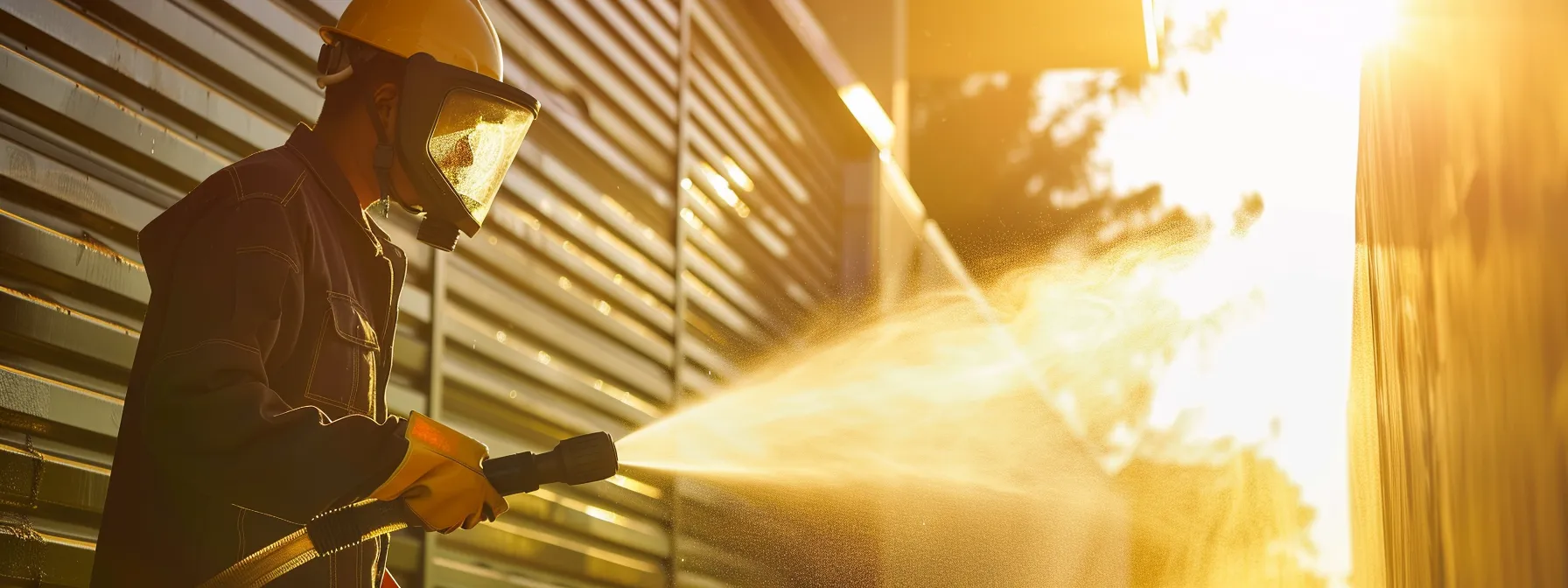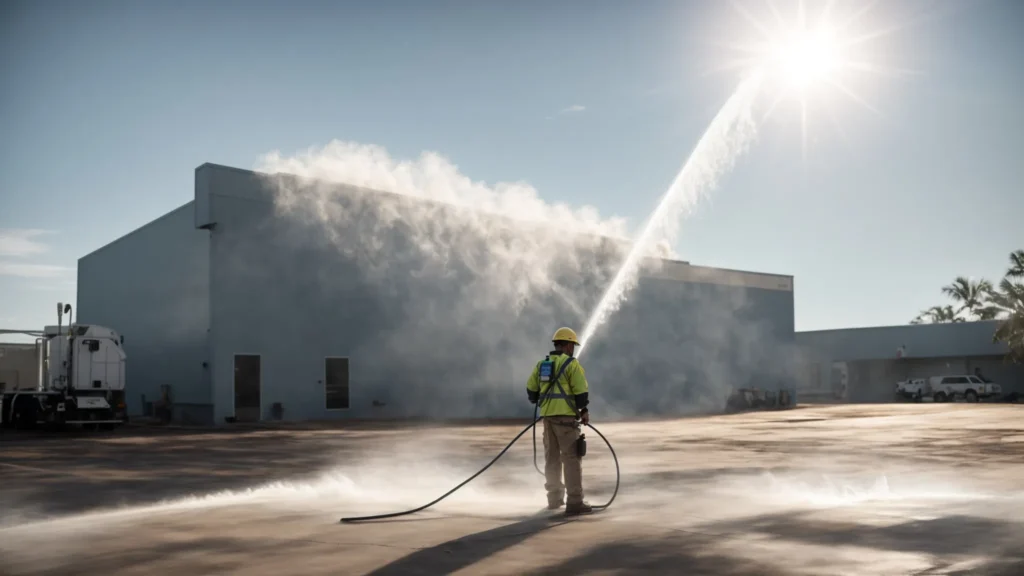Understanding the Risks: Safety Issues Every Florida Business Should Consider Before Pressure Washing
Pressure washing is a powerful cleaning method utilized by many Florida businesses to maintain their property’s aesthetic. However, the high-pressure water spray can pose significant safety risks if not handled properly. From potential injuries to the risk of property damage, businesses must understand the dangers involved. By ensuring proper safety measures are in place, companies can protect their employees, customers, and infrastructure. Keep reading to delve into the critical aspects of pressure washing safety that should not be overlooked.
Assessing the Risks: A Comprehensive Guide to Pressure Washing Safety in Florida

Florida businesses should conduct a risk assessment before pressure washing, considering hazards like slips, debris, and equipment issues, as well as the state’s humid, rainy climate. Employee training on machine settings, nozzle use, and cleaning agents is critical, along with routine inspections of hoses and pumps to prevent malfunctions.
Protective gear such as goggles, gloves, waterproof clothing, and non-slip shoes reduces injury risks, while barriers and signs help safeguard pedestrians. Electrical Safety in Commercial Pressure Washing is also key—businesses must keep water away from outlets and wiring, and use GFCIs to prevent shock hazards in wet environments.
Common Pressure Washing Hazards and How to Prevent Accidents
Durability is a critical factor when choosing vape cartridge filling machines. Equipment built with high-quality materials can endure continuous use, maintain consistent performance, and reduce costly repairs or replacements. A long-lasting machine ensures stable production flow and lowers the total cost of ownership, making it a smart investment for manufacturers operating in demanding environments.
Equally important is the ease of maintenance. Machines with accessible designs allow for quick cleaning and routine care, preventing breakdowns and extending service life. Features such as self-cleaning systems or residue-minimizing designs cut down on upkeep, saving time and labor. Supportive suppliers offering clear maintenance schedules and responsive service further help keep production reliable under heavy demand.
The Legal Implications of Pressure Washing Incidents in Florida Businesses
Pressure washing accidents can expose Florida businesses to serious legal risks, especially if safety standards are ignored. Employers are legally required to provide safe working conditions, and noncompliance with OSHA regulations can lead to heavy fines and litigation. In addition, employees injured during pressure washing may file workers’ compensation claims, leaving businesses responsible for covering medical costs, lost wages, and related expenses. Maintaining proper insurance is essential to protect against these financial burdens.
Legal exposure also extends beyond employees. Businesses may face civil lawsuits if customers or bystanders are harmed during pressure washing operations. Environmental compliance is another critical factor, as improper wastewater disposal or chemical use can trigger penalties. Companies must integrate safety and environmental protections to reduce liability and safeguard their reputation.
Implementing Effective Safety Protocols for Pressure Wash Operations

Creating a culture of safety in pressure washing requires clear protocols that cover every stage of the process, from pre-operation checks to post-cleaning procedures. Staff must be trained to follow these guidelines, with management actively monitoring compliance. Risk mitigation plans should prepare employees for both routine and unexpected scenarios, supported by regular drills and updated training on emergency stop procedures. Documenting these protocols ensures they remain current and accessible.
Strong communication further reduces risks, with signage, briefings, and scheduling during low-traffic hours helping protect employees and the public. Investing in equipment with modern safety features such as automatic shut-off, pressure regulators, and temperature controls not only prevents accidents but also raises operational standards.
Environmental Considerations for Safe and Sustainable Pressure Washing Practices
Florida businesses must prioritize eco-conscious pressure washing by controlling runoff, using biodegradable cleaning solutions, and conserving water. Capturing wastewater prevents storm drain pollution and protects aquatic ecosystems, while green agents reduce risks to both the environment and people. Training staff in proper application ensures compliance with regulations and meets growing consumer expectations for sustainable practices.
Water-saving pressure washers further support conservation efforts in a state with high water demand. These machines maintain strong cleaning performance while cutting consumption, benefiting both resources and operating costs. Gentle, non-toxic methods also extend the life of surfaces by preventing damage from harsh chemicals or excessive force, protecting property investments without harming the environment.
Altogether, pressure washing is a valuable service for Florida businesses that comes with inherent risks and responsibilities. By understanding the safety, legal, and environmental aspects and implementing rigorous protocols, businesses can ensure their pressure washing practices contribute to a safe, compliant, and eco-friendly operation.









